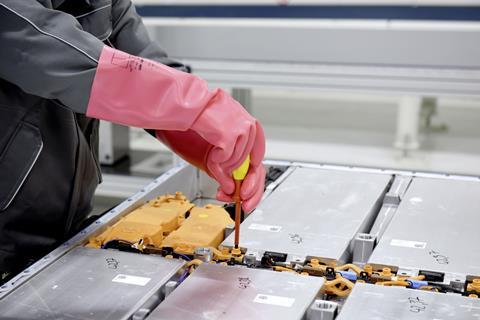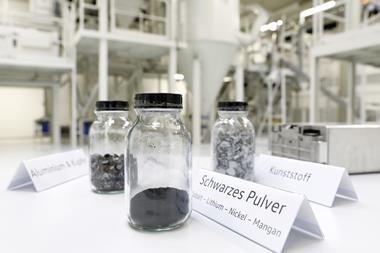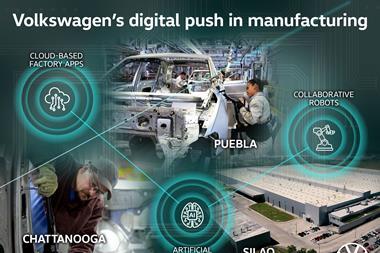The Salzgitter plant has started operations to create a closed-loop process for recovering raw materials from lithium-ion batteries

The aim is to recover valuable raw materials such as lithium, nickel, manganese and cobalt in a closed loop together with aluminium, copper and plastics, achieving a recycling rate of more than 90% over the long term. VW says that it will only recycle batteries that can no longer be used for other purposes. Batteries will be analysed to determine their suitability for second life use in mobile energy storage systems such as the flexible rapid charging station or the mobile charging robot, before being recycled.
Initial recycling volume is planned to be up to 3,600 battery systems per year during the pilot phase, with larger volumes of battery returns not expected until the late 2020s. The OEM note that the system can be scaled up to handle larger quantities as the process is optimised.
VW says its recycling process does not require energy-intensive melting in a blast furnace. The used battery systems are delivered, deep discharged, and dismantled. The individual parts are ground into granules in the shredder and then dried. In addition to aluminium, copper and plastics, the process also yields valuable “black powder”, which contains the important raw materials for batteries such as lithium, nickel, manganese, and cobalt, as well as graphite. The separation and processing of the individual substances by hydrometallurgical processes – using water and chemical agents – is subsequently carried out by specialised partners.
“As a consequence, essential components of old battery cells can be used to produce new cathode material,” explains Mark Möller, head of the Business Unit Technical Development & E-Mobility. “From research, we know that recycled battery raw materials are just as efficient as new ones. In the future, we intend to support our battery cell production with the material we recover. Given that the demand for batteries and the corresponding raw materials will increase drastically, we can put every gram of recycled material to good use.”








































No comments yet